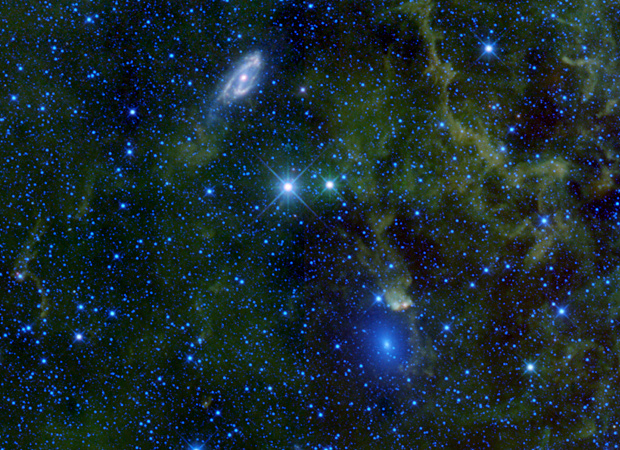
Led by Dr Pratika Dayal, of Durham University, the researchers hope their model will help identify galaxies with potential to host life as we know it.
“In simple terms the habitability of a galaxy depends on three things,” said Dr Dayal, an Addison Wheeler Fellow in Durham’s Institute of Advanced Study and Institute for Computational Cosmology.
“The first is the total number of stars capable of hosting planets, which is related to the size of the galaxy.
“Secondly, it depends on the total amount of the building blocks of planets and life, such as carbon, oxygen and iron that are available.
“Thirdly there is the need to consider the negative influence of supernova explosions whose powerful radiation can potentially inhibit the formation and evolution of complex life in nearby planets.”
Using a survey of more than 140,000 galaxies in the region of the universe nearest to Earth, the team found that elliptical galaxies could be the most probable “cradles of life”.
They also have the lowest rate of supernova explosion, meaning that most of these planets remain unaffected by harmful radiation and potentially could have the right conditions to host life.
The cosmobiological model covers the entire history of all galaxies in our local universe, which is necessary to understand the chances of galactic habitability. The researchers now hope to apply this model to the entire universe.
Professor Carlos Frenk, Director of the University’s Institute for Computational Cosmology, said: “Are we alone in the universe? Questions in science don’t come any bigger than this.
“Astronomers may be poised finally to answer this question through a combination of new observations from space that have revealed the existence of Earth-like planets around many stars, and theoretical studies like that of Pratika Dayal’s team which shine the spotlight on where the search for extraterrestrial life is most likely to succeed.”
The research team consisted of Dr Dayal at Durham University (galaxy formation), Professor Charles Cockell, Edinburgh University (conditions conducive for life), Professor Ken Rice, Edinburgh University (planet formation) and Dr Anupam Mazumdar, Lancaster University (origin of the universe).
Professor Martin Ward, Director of Science, at the University’s Institute of Advanced Study, said: “Major advances are often made when several very different areas of study are brought together, and Durham University is an international centre for such interdisciplinary studies.
“In this study, Pratika Dayal and her co-workers explore the fascinating topic of ‘cosmobiology’, with the aim to reveal the most hospitable places in the universe, for ‘life as we know it’.”
The findings are published in The Astrophysical Journal Letters.



